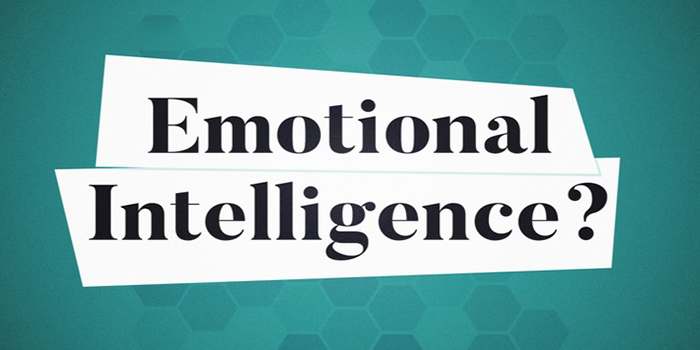JK News Today

The present “celluloid” era is marked by “me-only” orientation coupled by materialistic strivings to achieve “excellence” in varied spheres of life, to make the self “glorified”, thereby paying minimal heed to the needs of the others. Competition, jealousy coupled with other negative emotions, self-insufficiency serve as “piercing and attacking edges” to have their toll on interpersonal relationships in the long run. As such, the depth, genuinity and serenity of relationships are getting eroded at fast pace. It is Emotional Intelligence (El) which serves as a “catalyst” in making individuals aware of the emotional planes of themselves as well as others, and helps foster healthy relationships, which naturally calls forth well-being in the long run. Emotional Intelligence is the vehicle to well-being in relationship perspective.
INTRODUCTION
The present era of globalization is marked by perfectionistic orientation coupled by materialistic strivings to achieve “excellence” in varied spheres of life. People are increasingly focussing on the avenues to attain the “ideal standard” in the rat-race of unhealthy competition. As such, the relationship-platter is increasingly becoming brittle, with its enmeshed threads getting torn apart ruthlessly, owing to underlying prejudices, bigotry, conspiracies, unhealthy competitive-spree and the like. Hence, the dire necessity to realize the danger of the alarming situation and mending itself by adopting appropriate measures to re-instill happiness and well-being in the long run. The present chapter is a humble attempt to understand the significance of Relationship Science in the context of long-term well-being of individuals, with Emotional Intelligence (El) serving as an important catalyst in the process.
GREENING OF RELATIONSHIP SCIENCE
Relationship Science is emerging to be an integrating force within psychology. This is because close relationships are the essential units of human existence. The desire to establish and maintain intimate ties with others is considered by some to be a basic motive2. The success and failure of interpersonal relations have a profound impact on one’s life satisfaction3, psychological well-being, and physical health5. Besides, many studies have documented that a troubled relationship, especially a distressed marital or family relationship, is the most common problem of those seeking psychotherapy.
In fact, the tissue of a relationship is the oscillating rhythm of influence observed in the interactions of at least two people. This rhythm is displayed in regularities in their interaction pattern, and the goal of relationship science is to identify the causal conditions responsible for that rhythm. Relationships are inherently temporal rather than static. A relationship itself is invisible; its existence can only be discerned by observing its effects. The oscillating rhythm of a relationship emanates right from the time of conception through birth with the development of attachment with the significant care-giver within the initial few months of life followed by its reverberations in different spheres (owing to generalizations). Attachments first develop in terms of object-relations with a part object (i.e., the mother’s breast) followed by the perceptions of the mother as an “object”, and then as a “person”, to be generalized later on to other individuals with which the child interacts8. In fact, the crux of one’s relationship-web essentially depends on the quality of infantile reverberatoryconnection with significant members. The “yacht” of interpersonal relationships is steered properly by the catalyst of Emotional Intelligence, by balancing the fusion of head and heart. It paves the way for thoughtful reflection that essentiates the development of empathy, respect, reciprocity and acceptance of the “significant other”, which serve as the key pillars of healthy relationship.
EMOTIONAL INTELLIGENCE: THE KEY TO STEER RELATIONSHIPS
Emotional Intelligence (EI) is the integration of emotion and reason that results in a whole that is greater than the sum of its parts. It essentially depends on the optimum blend of affection and cognition that determines how people make sense of their emotional experience and how they use it. EI serves as a highlight factor in establishing and maintaining relationships. In fact, an interpersonal relationship is conceived of as a developing process of interdependent functioning characterized by recurrent patterns of interaction, the rules governing those patterns of interaction, and the relatively enduring emotional, cognitive and behavioural dispositions of the people involved toward the people and involved in the relationship. Every relationship has emotional and cognitive aspects that continue between interactions and contribute to its persistence.
Hence, the mental processes included in Emotional Intelligence are:
- Appraising and expressing emotions in the self and others,
- Regulating emotions in the self and others, and
- Using emotions in adaptive ways.
EI may be related both to characteristics that build relationships and to the quality of those relationships. Four building blocks of relationships where EI comes to play an important role may be
- Empathy
- The ability to self-monitor in social situations
- Good social skills and
- Cooperation.
The corresponding important indices of relationship quality may be affiliation, close affective ties and a satisfactory close partnership.
Thus, in any relational context, individuals need to start the process of recognition by attending to their bodies. They need to be able then to symbolize what they feel, first to themselves and then, when appropriate, expressing this to others. People need to be able to say to themselves, “I feel”. Having acknowledged their emotional experience, people then need to begin to understand those feelings. The mind needs to symbolize bodily felt experience in words, to synthesize the neuro-chemical cascades that wash over into conscious experience and symbolise them into personal meanings. Thoughtful reflection on emotional prompting is a crucial part of Emotional Intelligence. This is where conscious thoughts play its crucial role. Hence, it appears that El plays a crucial role in mending relationships so as to instill a sense of well-being in the long run.
EMOTIONAL INTELLIGENCE AS AN AVENUE TOWARD WELL-BEING IN RELATIONAL CONTEXT
EI enables individuals to have effective regulation of affect within themselves and others, thereby contributing to well-being. Thus, the emotionally intelligent person is often a pleasure to be around and leaves others feeling better, by means of the reverberatory impact of “contact therapy”. It reflects a focus on positive psychological and social functioning, personal strengths and mental health. As such, EI enables one to transcend the path toward personal growth by a continual process of “working through” one experiences in the canvas of relationships. Thus, the chief features of well-being, fuelled by EI in relationships include the development of:
- Self-acceptance
- Personal growth
- Sound purpose in life
- Environmental mastery
- Autonomy
- Positive and healthy relations with others
- Sense of generativity
- Coherence and integration of personality
- Mindfulness.
CONCLUSION
Thus, to draw the curtain close, it can be said that relationship platters are the most essential social-emotional commodity for all of us. To live happily and healthily, and help others to live the same way, we ought to have the “cloaks” of close and satisfying relationships. The sense of happiness with the root of belongingness creates the context of our sense of well-being. In this, the creator is behaviorally conceived to be emotional intelligence the new arena of cognition-emotion blended element of mind. It is this emotional intelligence (EI) which serves the crucial role of a mediator in making relationships meaningful and essential to their mental and physical well-being. As such, it is the catalyst which helps in keeping one’s relationship-web optimally functional, to bring forth feelings of happiness, well-being, and contentment with a generativity rimmed outlook as resultants on the whole.
‘Any Error in this manuscript is silent testimony of the fact that it was a Human Effort’
These are author’s personal views. JK News Today owns no responsibility for his views.





